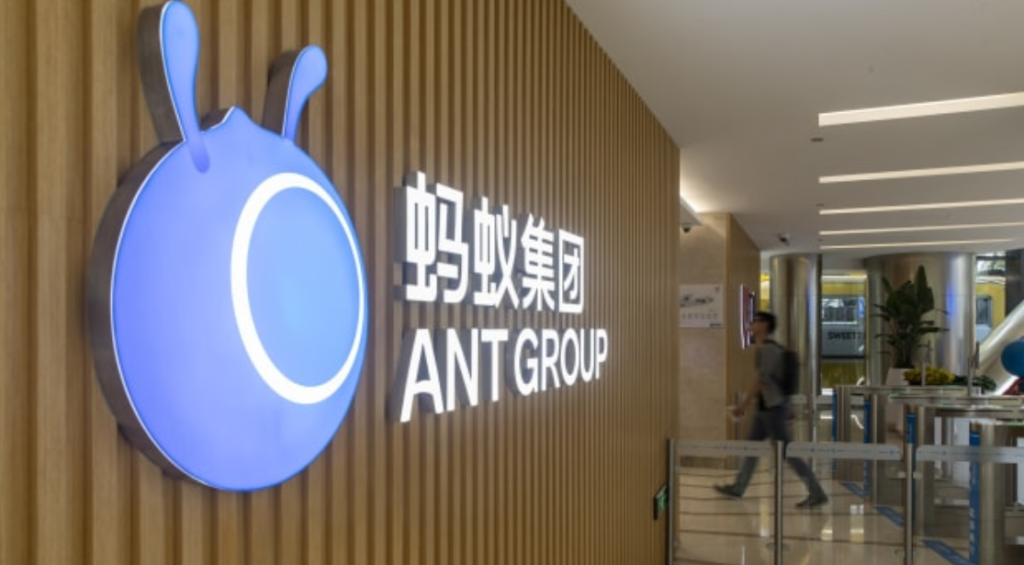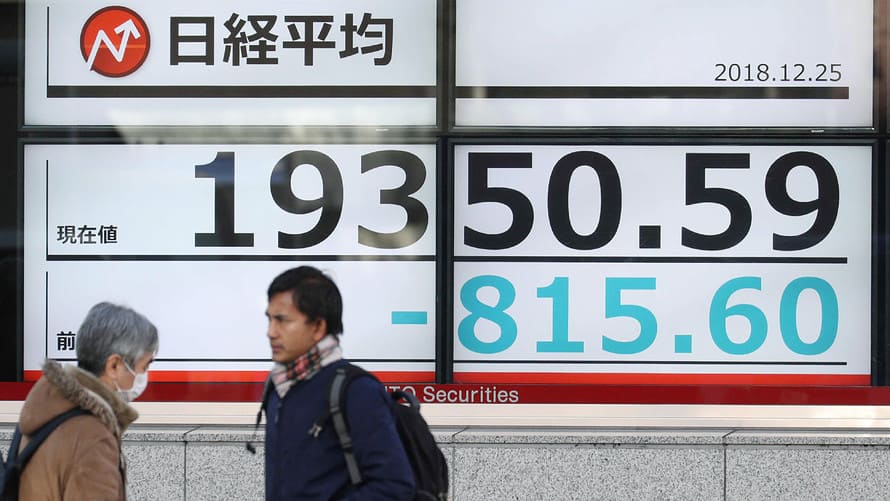
Guangzhou, CHINA — Chinese financial technology giant Ant Group, which was gearing up for the world’s biggest IPO, could see its valuation come crashing down after its public listing was suspended, experts said.
It comes as Beijing announced there will be proposed regulations on micro-lending — a move that could force Ant Group to hold more capital, and make the company look a bit more like a bank rather than a technology company, the experts told CNBC.
“The biggest risk for Ant will be shifting from a fintech to a capital intensive regulated bank and not losing its competitive connection with consumers,” Eric Schiffer, CEO of private equity firm The Patriarch Organization, told CNBC by email.
“The proposed regulation decimates Ant’s valuation to more than 1/2 taking it under $150 billion.”
Ant Group, which is a third owned by e-commerce giant Alibaba and controlled by founder Jack Ma, was set to start trading on Nov. 5 in Shanghai and Hong Kong. The initial public listing would have raised just under $34.5 billion — setting a new world record, and valued it at $313 billion.
But two days before that listing, the Shanghai Stock Exchange said it was suspending the IPO and that Ant Group reported “significant issues such as the changes in financial technology regulatory environment.”
The shock move came after Ma appeared to criticize Chinese regulators and after he and two other other top Ant Group executives were called into a meeting with regulators three days before the listing.
Regulations in focus
Chinese regulators also released draft rules for the micro-lending sector in Chinalast week, which could directly impact Ant Group’s business. The company’s biggest revenue driver is what it calls “CreditTech.”
Ant Group offers loans which are independently underwritten by the company’s partner financial institutions, which includes around 100 banks.
The Chinese giant says that around 98% of credit balance originated through its platform as of June 30 2020, were by its partner financial institutions or securitized.
That allows Ant Group to tout itself as a capital-light business.
But Beijing has proposed a joint lending model where internet platforms should fund no less than 30% of total loans. That appears to be the most significant point of the regulator’s draft proposals.
“This may be perceived by the regulators as constructing an unfair playing field – collecting the fees without taking the risks of a traditional lending institution – thus explaining the new reserve requirements,” David Hsu, a professor of management at the University of Pennsylvania’s Wharton School, told CNBC.
The result would effectively mean Ant Group needs to hold more capital.
“This would mean a shift away from the ‘asset light’ model which makes it more like a tech company selling tech services, (to) more like a bank backing up loans with its balance sheet,” Kevin Kwek, managing director and senior analyst at Bernstein, told CNBC by email.
“Views on valuation will also be affected as a result since tech multiples are much higher.”
Iris Tan, Morningstar’s senior equity analyst, estimated that Ant Group could be required to hold an additional 50 billion yuan ($7.56 billion) to 90 billion yuan under the joint funding proposal.
“Profit & loss impact should be insignificant, as the additional revenue as interests generated from self-funded loans should be able to cover expected credit losses in our view,” Tan said in an note published last week. “But the impact on valuation could be significant.”
Tan said Ant could top up its registered capital, shift the operating entity to a newly established consumer finance company and scale back their total consumer credit size.
“Ant isn’t short of the required capital today,” Bernstein’s Kwek noted. “The issue is more around the perceptions on operating model and potential constraints on growth in the future should capital not be sufficient.”
What does this mean for valuation?
Most experts agree that Ant Group’s valuation could take a beating, but some are unclear on what the final number might be. The dual IPO would have valued Ant Group at around $313 billion.
Tan said there are two potential negative impacts to valuation. Firstly, the need to ensure adequate capital or the equity portion of the business which could limit growth. Secondly, Ant’s lending business could be valued more like a bank rather than a technology company.
Banks tend to have lower so-called price-to-earnings (P/E) ratios than technology firms, one of the valuation metrics used by investors.
Bernstein’s Kwek said the market had priced in Ant Group’s price-to-earnings at the “higher end” of the Alibaba and Tencent range. Alibaba’s trades at just over 31 times earnings in the last 12 months. Tencent trades at nearly 50 times earnings in the last 12 months.
But instead of being valued in this range, Kwek said Ant Group was likely to be lower.
“The opposite might happen now, even lower for investors that are taking growth down significantly. Also, demand was a big factor driving up the P/E before and that’s obviously going to be softer next time around,” Kwek told CNBC.
“Our view is that it shouldn’t be on bank multiples — Ant is still a very unique model on a very strong payments base, off the (Alibaba) e-commerce platforms. A huge challenge has been put in front of it but it is too early to say they can’t come through,” Kwek added.
























